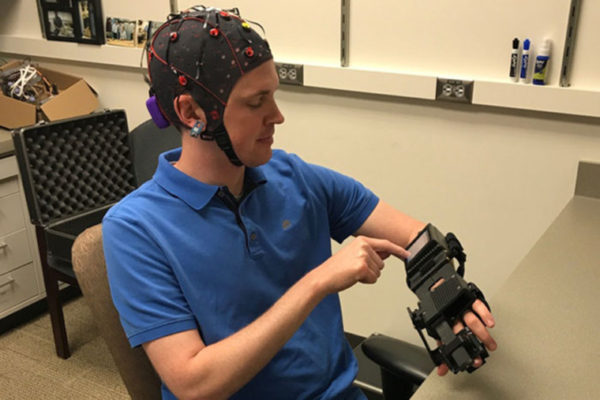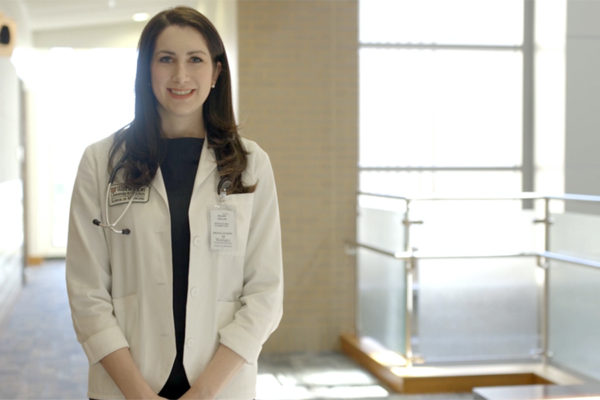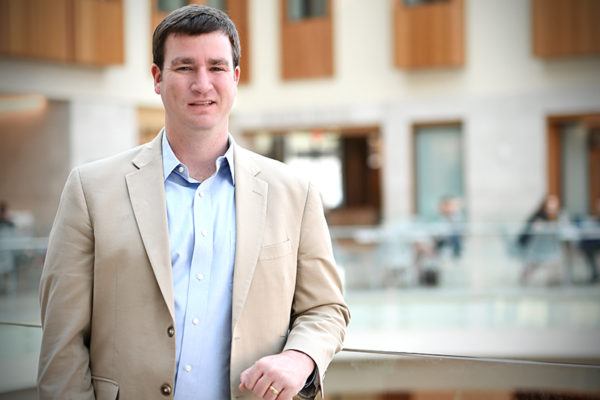New clues found to common respiratory virus
Mapping the molecular structure of an RSV protein that interferes with the body’s ability to fight off the virus, researchers at the School of Medicine have found clues to how RSV causes disease. This could potentially lead to a vaccine or treatment.
Drug believed to reduce postoperative pain and delirium does neither
A new study by anesthesiologists at Washington University School of Medicine in St. Louis and the University of Michigan Medical School sheds new light on the drug ketamine.
Mind-controlled device helps stroke patients retrain brains to move paralyzed hands
Stroke patients who learned to use their minds to open and close a device fitted over their paralyzed hands gained some control over their hands, according to a new study from Washington University School of Medicine in St. Louis
‘Take the leap,’ Quindlen tells Class of 2017
Anna Quindlen challenges new graduates to pick up their academic credentials and then to use them fearlessly.
Washington People: Lizzy Crist
Lizzy Crist, goalkeeper for the women’s national champion soccer team, will take numerous awards and honors along with a tremendous work ethic to her next stop in life: a PhD program in biomedical engineering at the University of Minnesota.
Many Washington University medical students seek dual degrees
Nearly one-third of the 135 students graduating this month from the School of Medicine will receive more than one degree. Those 44 students also will have earned advanced degrees in fields such as public health, biology and business. The drive for dual degrees reflects burgeoning motivation among physicians-to-be, particularly those attending the nation’s top-tier medical schools.
Class Acts: When the student writes curriculum
When Hilary Gallin discovered something was missing from her medical school training, she did something about it. Realizing there was no instruction on how to treat patients with disabilities, Gallin created a multiyear curriculum that has evolved into a mission for the School of Medicine.
Class Acts: Charting a new course for veterans
Veterans continue their serving ways as student leaders, encouraging and supporting each other’s personal and educational growth and advancement at the university and beyond.
Goetz: ‘Yes you can!’
Jennifer Goetz came to the Brown School to develop better systems to serve veterans.
Slack: ‘A bond of trust’
Jon Slack applied to Olin Business School because of its stellar faculty and track record placing graduates in top jobs. But he also chose Olin because of another veteran.
View More Stories









